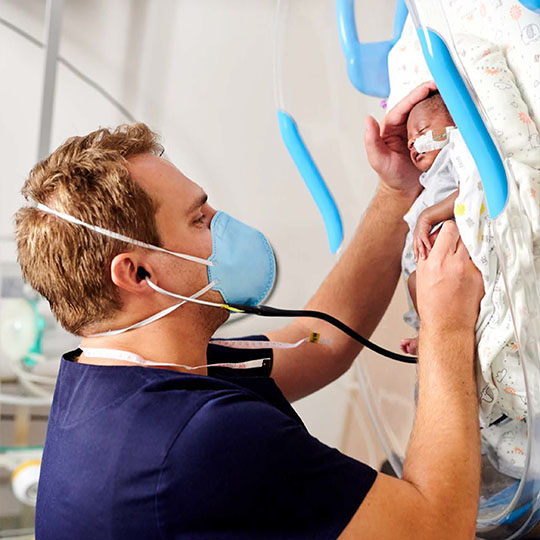Dr Ryan Moore has a special interest in neurology and the neurodevelopment of children and babies. Neurology is the field of medicine that deals with the nervous system - which includes the spinal cord and brain, and it is closely related to neurodevelopment. Neurodevelopment refers to brain development. Abnormal brain development causes brain function deficits that can affect a child’s memory, emotions, and their ability to learn, socialize and maintain self-control.
Dr Moore sees children with a range of disorders and assists with managing their complications. He can also assist with the early detection of neurological disorders. Early intervention provides the best possible outcome for children with a developmental delay. While there are no known cures for neurodevelopmental disorders, therapy treatments and medication are available to help your child. Dr Moore aims to educate parents by offering in-depth, up-to-date and trusted information to support you in managing your child’s neurodevelopmental disorder symptoms. Furthermore, Dr Moore consults closely with neurosurgeons, and other professionals, like occupational therapists, to ensure optimal healthcare.
Many disorders or deficits emerge and may be diagnosed at birth. Some children are diagnosed later because symptoms only appear when a child misses developmental milestones, has developmental difficulties, a harmful infection occurs, or they have an accident that causes a brain injury. These deficits can be mild or severe.

Common symptoms and conditions include:
- Seizures
- Meningitis
- Developmental delays
- Recurrent headaches
- Strokes
- Conditions and diseases that affect the nerves, brain, spinal cord and muscles - such as nervous system tumours, spina bifida, spinal muscular atrophy, polio, or disorders of the peripheral nerve like Guillain-Barre Syndrome.
- Learning disabilities - reading disorders, such as dyslexia
- Communication disorders, such as speech delay and stuttering
- Movement or motor disorders such as Cerebral Palsy and Tourette syndrome
- Behavioural or emotional and behavioural disorders, such as ADHD and autism spectrum disorders
- Impairments in hearing and vision

